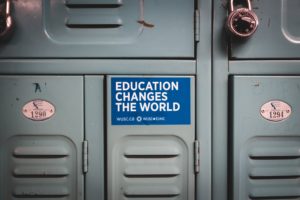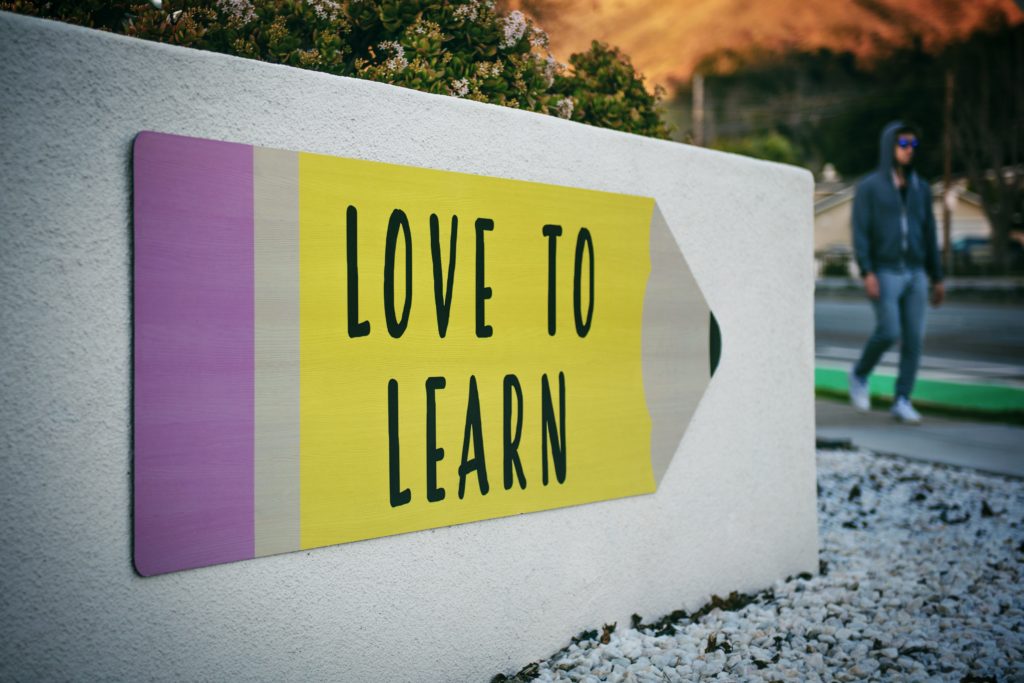“Education shall be directed to the full development of the human personality and to the strengthening of respect for human rights and fundamental freedoms. It shall promote understanding, tolerance and friendship among all nations, racial or religious groups, and shall further the activities of the United Nations for the maintenance of peace.”
UN Declaration of Human Rights Article 26
Creating a better world through learning and education. Whole person, whole life.
As is pointed out in the UN Declaration of Human Rights, a better world can only be achieved through education and learning. Knowledge to the human being is as indispensable to our survival as is food. We cannot develop without it, and as we have evolved over the last millennia, we crave it even more. Education allows us to develop the capacity to fully partake in being human, and knowledge does not discriminate on who it can benefit. We can all learn, and education thus is a human right that needs to be extended and nurtured throughout our lifetime and offered in diverse ways so we can develop the whole person within each of us.
Learning never stops. It is a lifelong occurrence
Education is a vehicle to transfer and embed knowledge about being a virtuous person. The appropriate education must go beyond just the academic and take a more holistic approach to considering from the start the knowledge, understanding and application of living as a virtuous person. Habits need to form from the earliest of ages and reinforced throughout life to continually strengthen and deepen our understanding of a sound character. Lifelong learning becomes a core activity of each person’s life, but not only for the increased knowledge that it may bring. Learning throughout life should be, most importantly, a continued reinforcement and deeper interaction with the virtues discussed in my previous blog, Good People, Better World that are the cornerstone of our utopia today.
We can understand and learn about virtues and virtuous living, but to become virtuous we must experience it in ever increasing ways and be challenged to act as such. Moreover, we discussed each cardinal virtue (Prudence, Justice, Fortitude, Temperance) as a separate and distinct characteristic, however, we need all four oftentimes together and, in some combination, and varying degree. The combinations are infinite, especially when one considers the countless number of experiences one might have. We will need to learn these, and relearn these regularly, and an education that is lifelong can help us engage with them intellectually and consciously for greater understanding. Lifelong learning allows this to happen at the most youthful point in our lives, and subsequently throughout our adulthood. Whole life learning should then be combined with whole person learning.
Holistic Education – Developing the Whole Person Throughout Life
A holistic education nurtures the development of an individual’s intellectual, emotional, social, physical, and creative abilities. This type of education goes beyond the traditional knowledge-based approach and develops the capacity to understand the world around us and to interact with the world and each other in a deeper and more meaningful way. As intelligent beings we can go deeper in our own self-awareness and self-knowledge. Holistic development, therefore, not only allows us to see the world from multiple perspectives, it also allows us to look within, and become more complete human beings.
With greater understanding of ourselves, our talents, and abilities, we will be better able to manage ourselves in a multitude of situations. These situations most often present themselves through interactions with other people. The infinite diversity of humanity provides limitless opportunities for each individual to learn and grow. However, as history has shown, our interactions with each other can have devastating consequences, most often due to misunderstanding which is often attributed to lack of understanding or more basic, a lack of knowledge.
One of the great contrasts of our existence is that while we are highly and sometimes fiercely independent within ourselves, we are at the same time highly and deeply dependent on each other. As a result, we need to discover our talents “hidden like a buried treasure,” and learn how to develop them to their fullest. With this as a lifelong quest, we learn to critically examine our lives and the lives of those whom we will interact. We see the importance of relationships to our own growth, a key aspect of a holistic education, and the growth of humanity. A holistic education encourages greater understanding of one another, and thereby cultivates a more compassionate, caring, and considerate person.
When we think back to the challenges of war, poverty, exclusion, ignorance, oppression, sustainability; these are complex issue that are challenging our current and future existence. There will likely not be one solution, but many and a combination thereof, that will come from many and a combination thereof of different people and peoples. We will need to draw on each other’s ability to think creatively across various disciplines and experiences to take risks and find solutions within new frontiers of thinking and acting.
Education of the whole person, then, contributes not only to the individual but to society, by developing the ability to understand one’s own individuality and the individuality of others, and more importantly the natural connections, and human interdependencies that exist. We know we need each other, but we often don’t know how, and how much. Whole person education lets us go deeper within ourselves and with each other to create a society that can transcend the tendencies toward misunderstanding, misinterpretation and subsequently conflict; avoidance of which must be a primary objective.
Education, then, is a foundational step toward utopia, and it cannot be restricted to a few. It is important that we extend it to all people on the planet. Of course, with 8 billion people and growing, this will be no easy task, but it is critical. An imbalance in knowledge, will create a severe imbalance in understanding, some of which we are already beginning to see.
No longer are we hampered by distance and lack of communication technology which previously created barriers to understanding. We can now reach almost anyone at any time or learn about most anything at any moment. Our biggest challenge now is learning to understand each other. A holistic education helps develop the capacity to achieve this, and it is important that this is provided to all people.
 We are a global community, and as one community we have an obligation to educate the whole community. UNESCO’s goal and program, Education for All and the follow-on program, Education, 2030, are outstanding efforts to point the world in the right direction. They acknowledge that it is the right of every human to a proper education and recognize the need for access to all people. Further, we have within the Sustainable Development Goals, SDG 4 to “Ensure inclusive and equitable quality education and promote lifelong learning opportunities for all.” However, it falls short of demanding this as a critical part of our future. This must be acknowledged with a massive commitment to provide education to all people on the planet.
We are a global community, and as one community we have an obligation to educate the whole community. UNESCO’s goal and program, Education for All and the follow-on program, Education, 2030, are outstanding efforts to point the world in the right direction. They acknowledge that it is the right of every human to a proper education and recognize the need for access to all people. Further, we have within the Sustainable Development Goals, SDG 4 to “Ensure inclusive and equitable quality education and promote lifelong learning opportunities for all.” However, it falls short of demanding this as a critical part of our future. This must be acknowledged with a massive commitment to provide education to all people on the planet.
We will not survive if a majority of the world are not educated, and worse yet, if the disparity grows. This must be a priority for the world. No doubt, we have made sound headway in this regard, with rising attendances around the world, but education is still not widely recognized as the crucial factor in advancing society forward. As Nelson Mandela stated, “Education is the most powerful weapon we can use to change the world.” We need to heed these words and use education and learning for the to create a better world.
CONCLUSION
A better world can only be achieved through education and learning that occurs throughout life and is focused on the whole person, and this education should be focused on becoming good and virtuous citizens of the global community. We need to learn to understand ourselves and each other and strive to be good citizens. The Preamble of the UN Charter refers to “we the peoples,” meaning all of us. We each have a role in creating be better world as citizens of our global community, and this will be the topic of my next blog.
"Education is the most powerful weapon we can use to change the world."
Nelson Mandela Tweet

